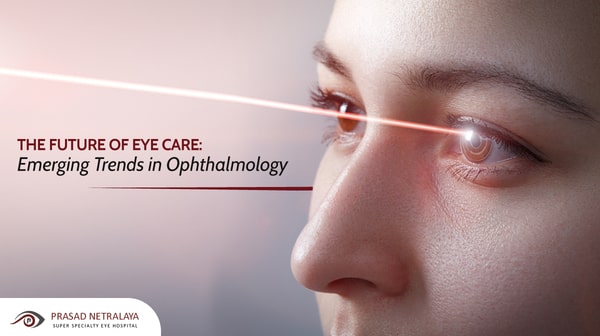Top Cardiologist in Andalusia: Expert Heart Care at Your Local Clinic
Is Refractive Surgery Right for You? Factors to Think About for Better Eyecare
In the world of eye care, the decision to undertake refractive surgical procedure is a substantial one that requires thoughtful factor to consider. From the details of one's eye wellness to the ins and outs of day-to-day routines and individual assumptions, each element holds importance in the broader landscape of refractive surgical procedure candidacy.
Eye Wellness Analysis
When taking into consideration refractive surgical procedure, a detailed eye health and wellness evaluation is critical to analyze the viability of the procedure for each person. cardiologist andalusia. This analysis entails a collection of assessments and tests performed by an eye treatment expert to identify the total health and wellness of the eyes, the presence of any kind of underlying problems, and the stability of the refractive error
During the examination, different elements are taken into account, such as the individual's case history, existing eye prescription, corneal thickness, student size, and tear movie quality. These evaluations help to recognize any contraindications to refractive surgical procedure, such as corneal irregularities, cataracts, or neglected eye infections. In addition, the evaluation assists to manage person expectations concerning the possible outcomes of the surgical procedure based upon their distinct eye features.
Ultimately, the eye health and wellness assessment is crucial in guaranteeing the security and efficiency of refractive surgical procedure, as it gives valuable insights into the person's eye health and wellness standing and aids establish one of the most suitable therapy alternatives for accomplishing optimal visual outcomes. (andalusia pediatrics)
Lifestyle Analysis
A complete way of life analysis is important in determining the viability of refractive surgical procedure for an individual's aesthetic modification needs. Way of life factors such as profession, hobbies, and everyday tasks play a vital role in the decision-making process pertaining to refractive surgical treatment.
Moreover, way of living behaviors such as sporting activities engagement, outdoor activities, or even skin care regimens can influence the recovery process and overall success of refractive surgery. By conducting an extensive way of life evaluation, eye treatment specialists can customize their recommendations and treatment plans to fulfill the special demands of each individual, inevitably leading to boosted visual outcomes and satisfaction.
Expectation Placement

Individuals require to comprehend that while numerous people accomplish 20/20 vision or far better following refractive surgical procedure, some may still need glasses for particular activities like analysis or driving at night. Handling these assumptions helps stop disappointment and discontentment post-surgery, leading to an extra favorable overall experience for the individual.
Risk Evaluation

Variables that may boost Get More Info the risk of difficulties consist of age, particular clinical problems like autoimmune illness, unpredictable vision prescription, thin corneas, and unrealistic person expectations. Furthermore, choosing a knowledgeable and knowledgeable doctor, complying with pre and post-operative care directions diligently, and revealing any type of pertinent clinical history can assist alleviate threats.
To minimize the probability of difficulties, eye doctors conduct extensive pre-operative analyses to recognize any contraindications to surgery. They likewise review the possible risks and advantages with clients throughout the appointment process. By engaging in open interaction and shared decision-making, both the patient and the eye doctor can work together to determine if refractive surgical treatment is the ideal option based on private danger profiles and desired outcomes.
Consultation Importance
Considering the crucial role of informed decision-making in assessing threats and possible issues in refractive surgical treatment, the examination process holds significant importance in leading people in the direction of ideal results. During the appointment, the eye doctor examines check my blog the client's eye health, refractive mistakes, and general suitability for surgery. This first evaluation is important in figuring out the most suitable procedure for each and every person, taking into consideration factors such as corneal density, pupil size, and existing eye problems.
Additionally, the assessment functions as an opportunity for people to review their expectations, issues, and any type of concerns they might have pertaining to the surgery. Clear interaction in between the client and the surgeon is important to make certain sensible expectations and a detailed understanding of the prospective threats and benefits involved.
Furthermore, the appointment enables the doctor to discuss the various surgical choices readily available, their particular end results, and the post-operative treatment required. This detailed discussion equips people to make well-informed choices concerning their eye care, bring about better contentment and outcomes post-surgery.
Final Thought
To conclude, individuals thinking about refractive surgical procedure ought to go through a detailed eye health assessment, examine their way of living habits, align their assumptions with possible outcomes, evaluate the connected threats, and focus on consultations with eye care professionals. These elements play an essential function in identifying the viability of refractive surgical procedure for each and every person, making certain optimum end results and satisfaction with the treatment.
Patients considering refractive surgical procedure usually have high assumptions pertaining to the end results, expecting ideal vision without the need for glasses or contact lenses. While refractive surgical treatment can significantly boost vision and reduce reliance on aesthetic help, it is essential for people to comprehend that results might differ based on private factors such as the try this web-site level of refractive error, corneal density, and total eye health and wellness.
By engaging in open communication and shared decision-making, both the eye doctor and the patient can function with each other to figure out if refractive surgical procedure is the ideal option based on individual danger profiles and wanted results.
Considering the critical function of informed decision-making in analyzing dangers and possible issues in refractive surgical treatment, the consultation procedure holds significant relevance in directing people towards optimum outcomes. Throughout the assessment, the eye doctor evaluates the individual's eye health, refractive mistakes, and total suitability for surgical procedure.